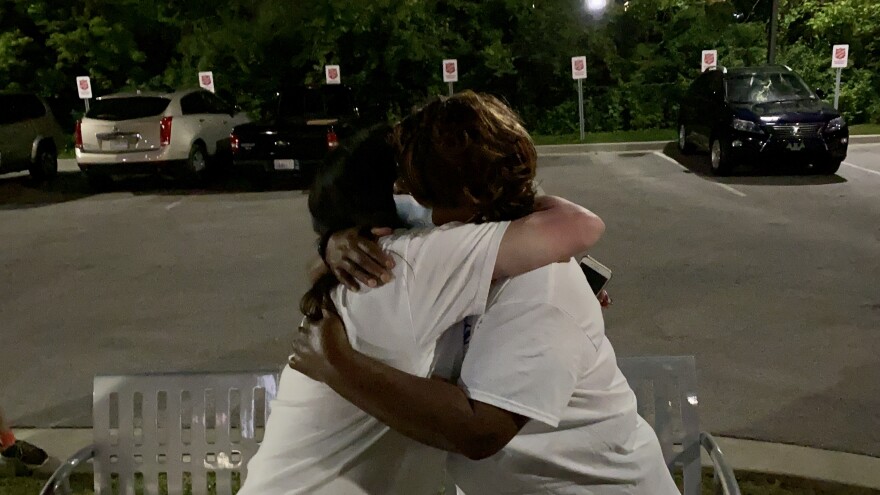Voters in Ferguson shattered a barrier on Tuesday by electing Ella Jones as the city's first African American mayor, a milestone for a community that’s been at the center of race and policing issues in the St. Louis region for nearly six years.
Jones will also be the first woman to hold the position.
Jones defeated fellow Councilwoman Heather Robinett to succeed James Knowles III, who was barred by term limits from running again. She’ll lead a city that’s struggling financially from coronavirus-related shutdowns — and repairing damage to businesses over the weekend that came after George Floyd protests.
“People from the seniors to the young people understand that my goal is for us to be one — for us to work together,” Jones said.
Jones, a former sales director for Mary Kay cosmetics, was part of a new wave of Ferguson city council members who were elected after Michael Brown’s shooting death in 2014. She was part of a city council that had to work out a consent decree with the federal government that required Ferguson to change its police department and government.
After falling short in 2017 of unseating Knowles, Jones edged out Robinett by 138 votes. As mayor, she doesn’t have a lot of formal power — as Ferguson’s city manager is charged with running the day-to-day affairs of the city. Still, Jones can push through policy changes if the rest of the council is aligned with her — and she’ll serve as a key booster and spokesperson for the city.
Asked what it meant to be the first black mayor in a city that’s publicly grappled with racial reconciliation for more than five years, Jones replied: “That means I got work to do.”
“Because when you’re the first African American woman, they require more of you than they require of my counterparts,” Jones said. “I know that the people of Ferguson are ready to stabilize their community. And we’re going to work together to get it done.”
Robinett will still serve on the Ferguson City Council. Once the results became final, Robinett came to Jones’ victory party at the Urban League Empowerment Center and promised to work with her. The two candidates embraced as Jones’ supporters cheered.
“We need to heal, and I am there for you,” Robinett told Jones.

Once she’s sworn in as mayor later this month, Jones will face two big challenges: getting businesses back on their feet after rioters and looters damaged buildings over the weekend, and dealing with the city’s perilous financial situation.
Like other St. Louis County municipalities, Ferguson’s revenue has plummeted because of coronavirus-related shutdowns. And Jones said the council will have to make some tough decisions in the months ahead — adding that the city is dealing with a $1.3 million deficit.
And damage to businesses on Saturday and Sunday didn’t help. After demonstrations ended, some people smashed windows and trashed businesses throughout South Florissant Road — the home of many of Ferguson’s most popular places.
Despite entering in the consent decree, Ferguson is often a hotbed for protests because of how prominent the city became after Brown’s death.
“Something happens in the country, our hearts bleed like everybody else,” Jones said. “But we do not need to bleed with our businesses. We have people who are out of work. We’ve just come through a pandemic.”
Jones said Ferguson should not bear the burden for all of the St. Louis region’s racial inequities when the city government has undergone big changes since 2014, including bringing in more African Americans into key positions and overhauling how its police department operates.
“A lot of times we’re considered as ground zero. But it’s just heartbreaking,” Jones said. “Racism is just apparent all over the country now. It has reared its head again. So we’ve got to work to try and bring people together, work together and try to make this a better community for all of us.”
Jones also said she wants to meet with the Department of Justice and the people that are monitoring Ferguson’s progress with the consent decree “to come up with a better plan of action.”
Follow Jason on Twitter: @jrosenbaum
Send questions and comments about this story to feedback@stlpublicradio.org







